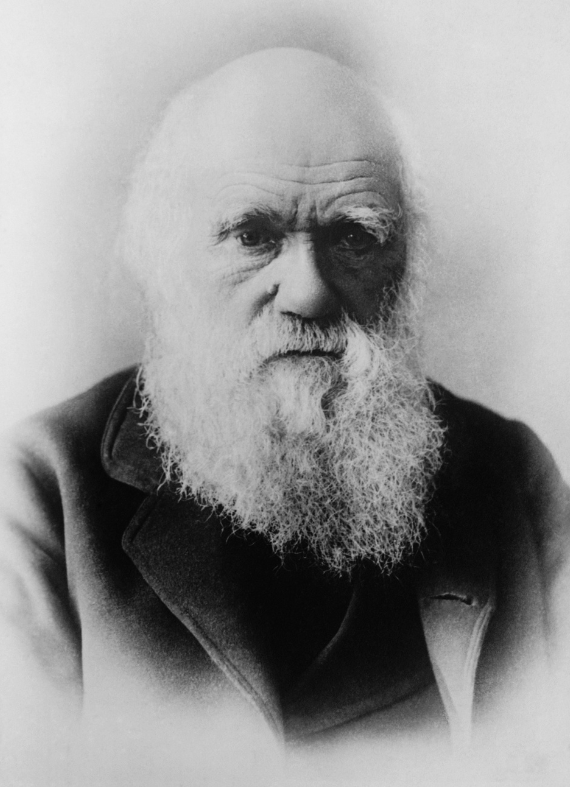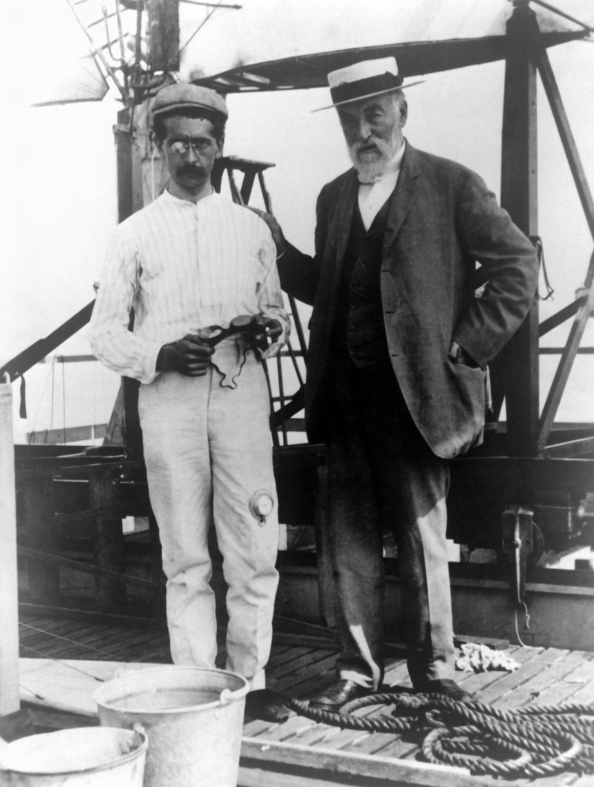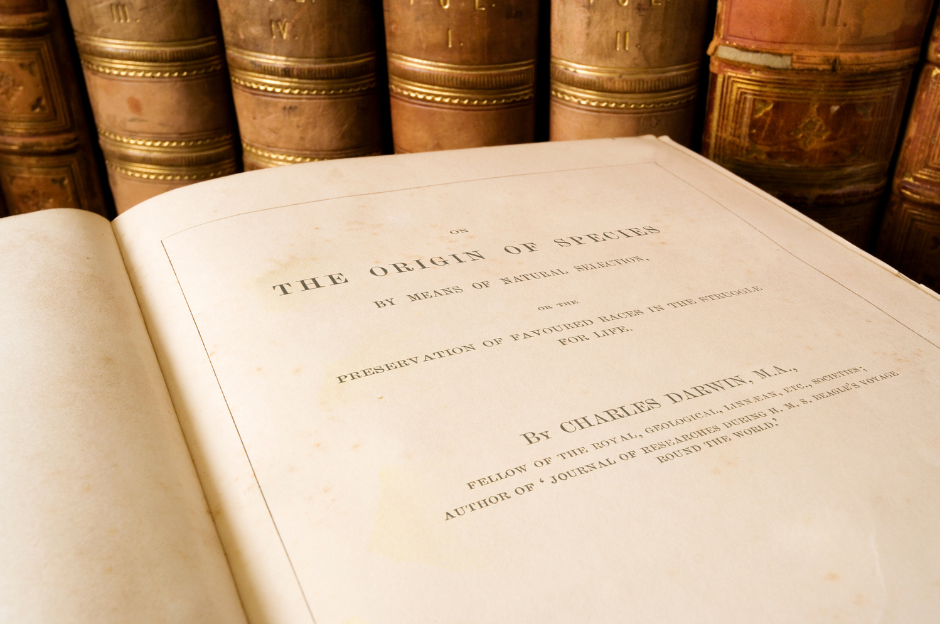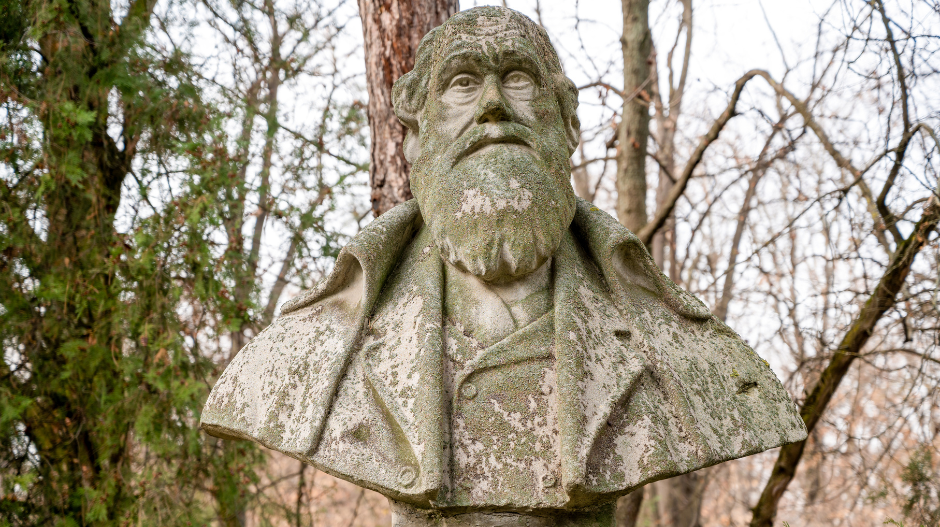Charles Darwin wasn’t just a scientist, he was one of the Victorian Era’s most revolutionary thinkers. His work helped to turn the tables on how we understand the very nature of life itself. Darwin’s theory of evolution shook the very foundations of Victorian society and religion.
He wasn’t the only person at this time to be challenging creationism and the Churches account on the origins of man. Or the only scientist to be championing a theory of evolution. Jean-Baptiste Lamarck’s theories on the ‘transmutation of species’ – backed up by the work of German Biologist Ernst Haeckel – preceded and in some respects inspired and complemented Darwin’s work. But these theories, along with others, had a different account of what causes the change or ‘evolution’ of species over time, and Darwin’s theory proved to be the most well supported or argued.
Below, we will explore more about Darwin, the man who dared to challenge the status quo, to challenge ideas at the very core of the nature of life through scientific process and study.

Life Summary
- Lifespan: February 12, 1809 – April 19, 1882
- Birthplace: Shrewsbury, England
- Where he lived: Primarily in England, but travelled globally on the HMS Beagle
- Known for: Developing the Theory of Evolution by Natural Selection
- Crowning Achievement: His groundbreaking book, “On the Origin of Species“
Charles Darwin Is Famous For …
Darwin’s claim to fame is his revolutionary theory that species evolve over time through a process called natural selection. This idea, which he meticulously developed over decades, suggests that organisms better adapted to their environment tend to survive and produce more offspring. This concept challenged the prevailing belief of the time that species were unchanging and created exactly as they appear.
Early Life and Influences on Charles Darwin
Born into a wealthy family, young Charles Darwin was a curious and observant child, always fascinated by the natural world. His father, a doctor, and his grandfather, Erasmus Darwin, a renowned botanist and philosopher, significantly influenced his early interest in nature and science. However, Darwin’s path wasn’t straightforward. He initially enrolled in medical school but found it wasn’t his cup of tea. Instead, he turned to studying theology at Cambridge, where his passion for natural history truly blossomed.
Darwin’s Voyage On The Beagle

In 1831, a young Charles Darwin embarked on an extraordinary adventure that would forever change the course of not only his life, but of natural science. Aboard the HMS Beagle, a British naval vessel, Darwin set sail on a five-year journey that would take him around the world. Initially joining as a companion to Captain Robert FitzRoy, Darwin’s role soon evolved due to his keen interest in natural history.
The voyage of the Beagle had bold intentions. Setting off with the purpose of mapping the entire South American coastline. Unlikely though, that anyone at the time could have foreseen just how impactful this journey would be. How it would transform Darwin into one of the most famous people in history.
For Darwin, it became a journey of discovery that laid the very foundation on which his revolutionary ideas on evolution and natural selection were built. He meticulously collected and documented lots of natural specimens, from fascinating fossils to curious creatures, across many different environments. When he unearthed these ancient fossils, he witnessed long extinct species that seemed to suggest that living things, over time, went through a process of gradual change.
The Galápagos Islands were his richest playground. It was here that he observed variations in species, such as the famous finches, from one island to another. These observations led him to contemplate the interconnectedness of life and the possibility of species adapting to different environments.
Other Influences on Darwinism
Darwin’s development of his theory was influenced not just by his Beagle Voyage, but by various thinkers and scientists. One significant influence was Geologist Charles Lyell, particularly his ideas about the Earth’s age and gradual geological processes. Prominent economist Thomas Malthus’s writings on population growth and resources, were also influential. These, as well as other including scientific competitors at the time, were all influential in shaping Darwin’s thoughts. Challenges only seemed to strengthen his case and conviction.
Darwin as a Social Critic
When not destroying paradigms and changing our entire understanding of the biological world, Darwin was also a vocal critic of some difficult social norms and injustices of his time. His voyage on The Beagle had exposed him to the realities of slavery, and he became particular outspoken against this. He was one of the few men of influence to argue against the inequality and inhumanity of slavery, which was not a popular view to share at the time.
Paradigm Shift
Darwin’s work is perhaps the clearest example, certainly of the Victorian Era, of a paradigm shift in the scientific community and society at large. Clearly disruptive, breaking all the contemporary rules and revolutionary. His theory of evolution by natural selection changed how we understand the development of life on Earth. It influenced various fields from biology to anthropology. Reshaped our perception of humanity’s place in the natural world.
Is it fare to give Darwin all the credit for this shift? Probably not. His influence and impact can never be denied, but there were others arguing similar and credible evolutionary theories at the same time. Would these other theories have been enough to provide a substantial alternative to creationism on their own? We will never know. But what we do know, is that while Darwin can’t take all the credit, he certainly deserves a great portion of it.

The Origin Of Species
Published in 1859, “On the Origin of Species” is Darwin’s most famous work, where he meticulously laid out the evidence for evolution by natural selection. The book was both ground breaking and controversial. It sparked widespread debate and discussion in scientific and public spheres.
Darwin’s Other Works
Other significant works of Darwin include:
- ‘The Descent of Man,’ where he applied evolutionary theory to human evolution.
- ‘The Expression of the Emotions in Man and Animals,’ exploring the biological roots of emotional life.
Darwin also conducted extensive research on plants, barnacles, and earthworms. Contributing significantly to various natural and biological scientific fields.
Reception of Darwin’s Work and Theories
The reception of Darwin’s work was mixed. While some in the scientific community quickly embraced his ideas, others were sceptical or outright hostile. The general public’s reaction ranged from fascination to shock and outrage. Particularly among religious groups. Conflict and resistance appeared to come from all angles, and yet none could stop the gears of motion in this new and challenging scientific movement.
Religion Vs Darwinism
Darwin’s theories sparked a major conflict with religious doctrines, particularly the literal interpretation of the creation story in the Bible. The church’s reaction to Darwin’s theories was, in many cases, one of outright fury and condemnation.
This clash added new tares to the already significant rift between science and religion. Many religious leaders and followers saw Darwinism as a direct threat to their beliefs. In the past he would simply have been branded a heretic and that would be that. And boy did they try to do this with Darwin. But the creationists could not dismiss so easily the science backed evidence of Darwin’s theories. The evidence, was all around.
Impact on Victorian Society and Children
Darwin’s theories had a profound impact on Victorian society, challenging established beliefs and social norms. His ideas influenced educational approaches, prompting a shift in Victorian schools towards scientific and empirical methods in teaching. For the first time, Victorian children began to learn about the natural world through the lens of evolution, a significant departure from the religious and moralistic education of the time.

Darwin’s Legacy
Darwin’s legacy is immense. He is widely regarded as one of the most influential people in not just the Victorian era, but the whole of history. His theories fundamentally changed our understanding of life on Earth. He laid the groundwork for modern biology and influenced a wide range of disciplines, from psychology to ecology. But not everyone believes that Darwin deserves all this credit. There are those that have even suggested that Darwin plagiarised from others work, or that he revised his evolutionary theory to fit models suggested by others already gaining momentum.
It was never going to be an easy job. Challenging creationism with a theory that would open the door to new science and discovery. While most refute the plagiarism claims, whatever the truth is, Darwin’s impact can never be denied. His work inspires debate, scientific method and evidence, and that is a wonderful legacy.
10 Fun Charles Darwin Facts
- Nature Lover: Darwin was an avid collector of beetles during his youth.
- Slow and Steady: It took Darwin over 20 years to publish his theory of evolution.
- Globetrotter: He spent five years circumnavigating the globe on the HMS Beagle.
- Animal Friend: Darwin had a pet tortoise named Harriet, who lived to be over 175 years old!
- Health Issues: Darwin struggled with chronic health problems throughout his life, the cause of which is still debated by historians.
- Family Man: He married his cousin, Emma Wedgwood, and they had ten children.
- Avid Reader: Darwin was a fan of Shakespeare and Milton.
- Late Bloomer: He was considered an average student and often scolded for his ‘idle’ nature.
- Vegetarian by Necessity: Later in life, Darwin could only eat simple foods and often followed a vegetarian diet.
- Lasting Influence: More than a century after his death, Darwin’s theories continue to shape scientific thought.